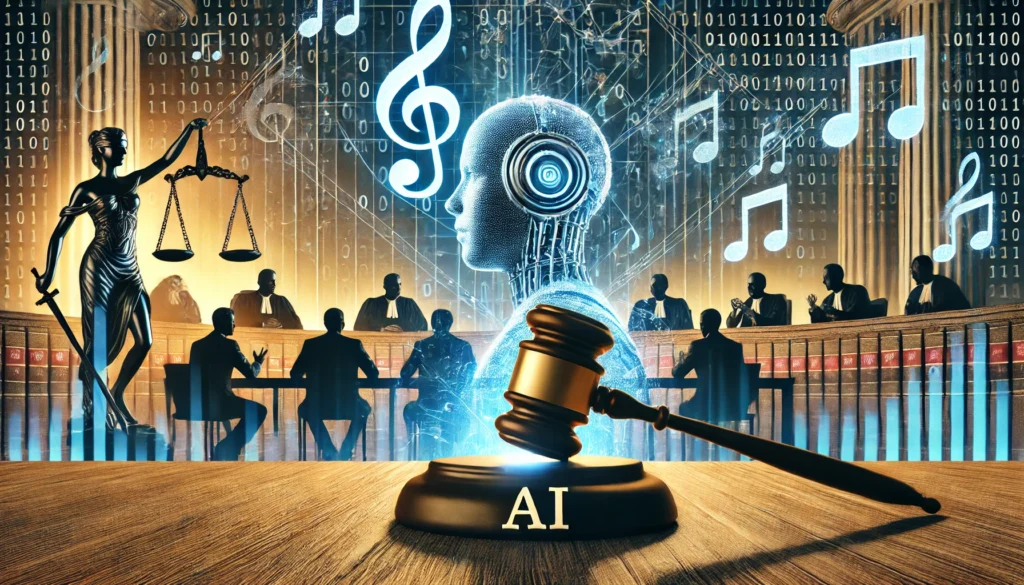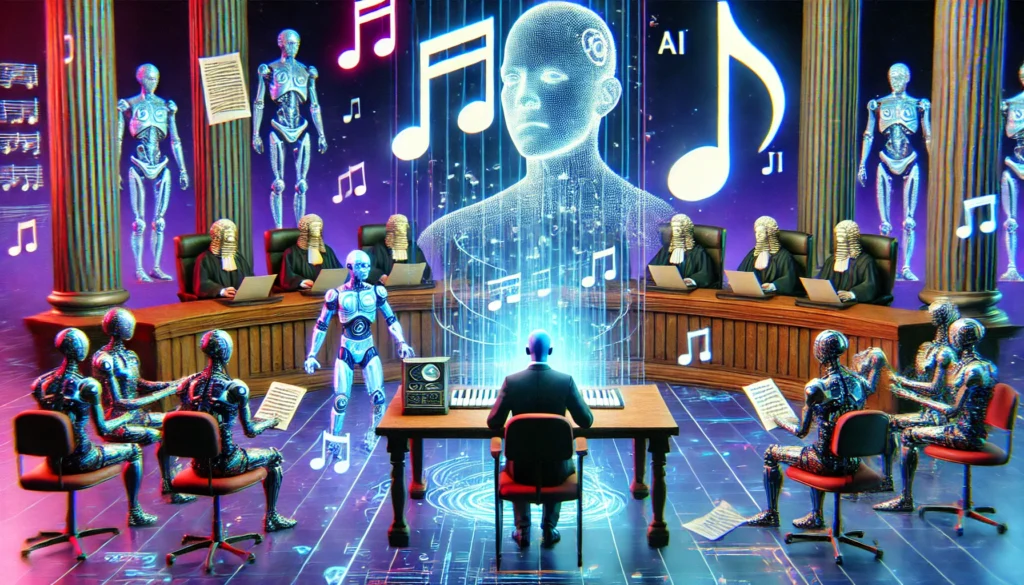UK AI copyright policy debate continues amid pressure form artists. The UK government appears to be rethinking its controversial approach to AI regulation in the creative industries following significant pushback from artists, industry representatives, and lawmakers. The proposed “opt-out” policy for AI training data has sparked intense debate about creators’ rights in the age of artificial intelligence, with mounting pressure forcing officials to reconsider their position.
The Controversial Opt-Out Proposal Explained
At the heart of the controversy is a policy framework that would permit AI companies to train their models on copyrighted creative works by default, requiring creators to actively opt out if they wish to protect their content from being used as training material.
This approach stands in stark contrast to an “opt-in” system, which would require AI developers to obtain explicit permission before using copyrighted works for training purposes.
The key elements of the proposed opt-out framework include:
- AI companies could legally use any copyrighted material not explicitly excluded
- Creators would bear the burden of identifying and excluding their work
- The system would likely require technical measures to recognize and honor opt-out requests
- Critics argue this effectively reverses traditional copyright principles
ALSO: Can You Copyright AI Music in 2025? Understanding Legal Rights & Ownership
Growing Opposition From Multiple Fronts
The backlash against the opt-out policy has intensified in recent months, coming from several influential groups:
Music Industry Mobilization
The music industry has been particularly vocal in its opposition, with artists, songwriters, labels, and publishers uniting to challenge the government’s approach. Industry representatives argue that:
- The opt-out system unfairly shifts the burden onto creators
- It fundamentally undermines existing copyright protections
- Implementation would be practically impossible for many independent artists
- The economic value extracted from creative works would primarily benefit AI companies rather than content creators
Political Pressure Mounting
The opposition has gained significant political traction, with lawmakers from across the political spectrum expressing concerns about the proposal’s implications. This cross-party alignment has increased pressure on the government to reconsider its position.
Notable political developments include:
- Questions raised in Parliament about the legal foundation of the proposal
- Concerns expressed by members of both major political parties
- Growing recognition of the potential economic impact on the UK’s creative sectors
- International considerations as other jurisdictions develop different approaches
Signs of a Government Shift
Recent indications suggest the UK government may be preparing to modify its approach in response to the widespread criticism. While no official policy change has been announced, sources close to the decision-making process have hinted at a potential recalibration.
The possible shift appears to be driven by:
- Sustained industry advocacy highlighting practical and ethical concerns
- Legal analyses questioning the compatibility with existing copyright frameworks
- Political calculations as creative industry concerns gain broader public attention
- International developments as other countries establish different regulatory precedents
The Global Context: Different Approaches to AI Regulation
The UK’s reconsideration comes amid a global patchwork of emerging AI regulatory frameworks, with different jurisdictions taking varied approaches to the question of training data and copyright.
European Union’s More Restrictive Approach
The EU has generally taken a more cautious stance, with its AI Act and Digital Services Act creating a regulatory environment that tends to favor stronger protections for rights holders. The contrast with the UK’s initially more permissive approach has been stark.
US Debates Still Evolving
In the United States, the legal landscape remains unsettled, with ongoing copyright cases potentially establishing precedents for how AI training data will be treated under fair use doctrines.
The Technical Challenges of Implementing Opt-Out
Beyond the legal and ethical debates, the practical implementation of an opt-out system poses significant technical challenges:
- Identification mechanisms: How would AI systems reliably identify content that creators have opted out?
- Verification problems: How would opt-out requests be authenticated and enforced?
- Scale issues: With millions of potential rights holders, how would the system manage the volume of opt-out requests?
- Legacy content considerations: How would works created before any opt-out system be handled?
Economic Implications for the UK Creative Sector
The UK’s creative industries contribute over £100 billion annually to the economy and employ more than 2 million people. Critics of the opt-out approach argue that undermining copyright protections could significantly damage this vital economic sector.
Key economic concerns include:
- Potential devaluation of creative works if used freely for AI training
- Reduced incentives for investment in new content creation
- Competitive disadvantage compared to markets with stronger protections
- Long-term impact on the UK’s position as a global creative hub
The Broader AI Ethics Conversation
The debate over opt-in versus opt-out approaches reflects larger questions about how society should balance technological innovation with existing rights and structures:
Innovator’s Perspective
Proponents of less restrictive frameworks argue that:
- Limiting training data access could hamper AI development
- The UK could gain competitive advantage through a more permissive approach
- AI systems trained on diverse creative works could democratize creation
Creator’s Perspective
Those advocating for stronger protections maintain that:
- Creative works represent both economic and intellectual investments
- Traditional copyright principles should extend to new technologies
- Consent should be foundational to any use of copyrighted material
- The value generated by AI should be shared with those whose works enable it
Looking Forward: Potential Policy Outcomes
As the UK government reconsiders its position, several potential outcomes have emerged:
- Complete reversal to an opt-in system requiring explicit permission
- Hybrid approach with different rules for different types of content or uses
- Modified opt-out with stronger protections and compensation mechanisms
- Delayed implementation pending further consultation and technical solutions
Implications for AI Developers and Platforms
For companies developing AI models, the uncertainty surrounding UK policy adds another layer of complexity to an already challenging regulatory landscape:
- Compliance costs may increase if policies shift toward more restrictive approaches
- Dataset curation could require more sophisticated rights management
- Business models may need adjustment if training data access becomes more limited
- International operations will need to navigate increasingly divergent regulatory frameworks
What This Means for Artists and Content Creators
For the creative community, the potential policy shift represents both an advocacy victory and an ongoing challenge:
- Continued vigilance will be required as policies evolve
- Technical solutions for protecting creative works will remain important
- Collective action has proven effective in influencing policy direction
- New business models may emerge for licensing content to AI developers
ALSO: Who Owns AI Music?
Conclusion
The UK’s reconsideration of its proposed opt-out policy for AI training data marks a significant moment in the evolving relationship between artificial intelligence and creative industries. The apparent shift underscores the power of coordinated advocacy from the creative sector and highlights the complex balancing act governments face in regulating rapidly advancing technologies.
As the situation continues to develop, the outcome will likely influence approaches in other jurisdictions and set important precedents for how creators’ rights are protected in the age of AI. For both the creative industries and AI developers, adaptive strategies will be essential in navigating this changing landscape, with the potential for new collaborative models that respect creators’ rights while enabling technological innovation.
The coming months will be crucial in determining whether the UK adopts a framework that effectively balances these competing interests or continues to face resistance from a united creative sector determined to protect its fundamental rights in the digital age.











